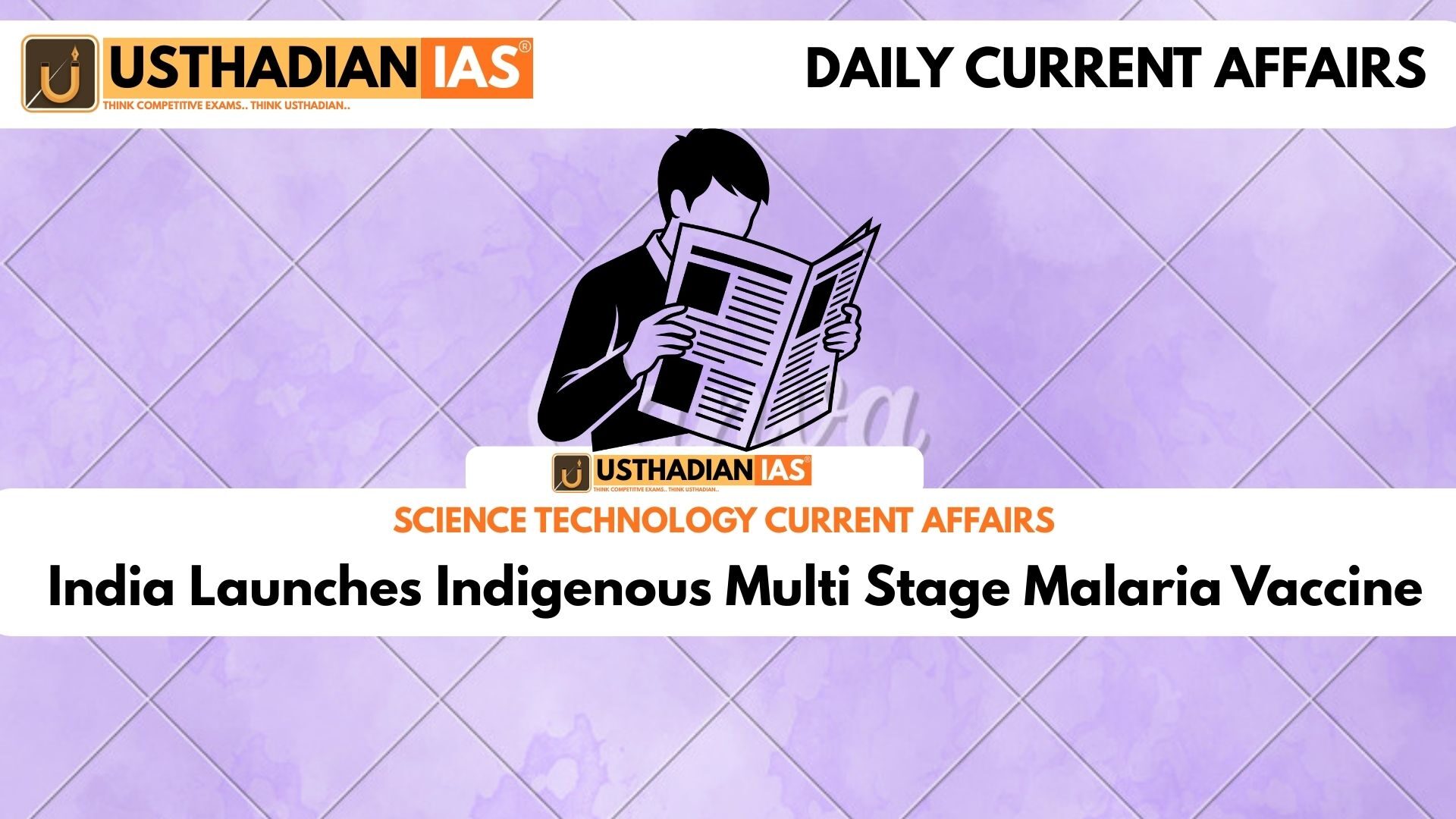Indigenous vaccine breakthrough
India Launches Indigenous Multi Stage Malaria Vaccine: India has launched its first indigenous multi stage malaria vaccine named AdFalciVax. The development was led by the Indian Council of Medical Research (ICMR) and its partner institutes. This vaccine is a major step in reducing malaria transmission in India, especially in remote and tribal areas.
Development and technology transfer
The vaccine is a recombinant chimeric vaccine designed against Plasmodium falciparum. It was developed using Lactococcus lactis as the production platform by ICMR’s Regional Medical Research Centre (RMRC), Bhubaneswar. Pre-clinical studies were validated with the National Institute of Malaria Research (NIMR) and the National Institute of Immunology, New Delhi.
ICMR has invited pharmaceutical companies to take part in Transfer of Technology (ToT) for commercial scale production and wider distribution.
Vaccine characteristics and benefits
AdFalciVax works by preventing the malaria parasite from entering the bloodstream, cutting off both infection and transmission. The vaccine remains stable for over nine months at room temperature, making it highly suitable for areas with poor cold chain infrastructure.
Its multi stage design allows it to act at different phases of the parasite’s life cycle, ensuring higher efficacy. The affordability and scalability of this vaccine can accelerate malaria elimination efforts in India.
Static GK fact: The world’s first malaria vaccine, RTS,S/AS01 (Mosquirix), was approved by the WHO in 2021 for widespread use in children in Africa.
Malaria burden in India
India accounts for 1.4% of global malaria cases and 0.9% of global malaria deaths. The country represents 66% of malaria cases in Southeast Asia and 52% of deaths outside sub-Saharan Africa.
Nearly 95% of India’s population lives in malaria endemic regions, with the highest cases seen in tribal and hard to access areas where 20% of the population resides. The vaccine is expected to significantly lower disease incidence in these vulnerable communities.
Static GK Tip: World Malaria Day is observed every year on 25 April to raise global awareness about malaria prevention and elimination.
Wider impact
The indigenous vaccine strengthens India’s image as a hub for biomedical innovation. Its stability and affordability make it a potential export product for other malaria affected nations. Combined with preventive measures like insecticide treated nets and rapid diagnostics, it could push India closer to the goal of malaria elimination.
Static Usthadian Current Affairs Table
India Launches Indigenous Multi Stage Malaria Vaccine:
| Topic | Detail |
| Vaccine name | AdFalciVax |
| Developed by | ICMR RMRC Bhubaneswar with partners |
| Target parasite | Plasmodium falciparum |
| Production platform | Lactococcus lactis |
| Stability | 9 months at room temperature |
| Key collaborators | NIMR and National Institute of Immunology |
| India malaria burden | 1.4% of global cases, 0.9% of global deaths |
| Endemic population | 95% of India’s population at risk |
| Global malaria day | 25 April |
| First global malaria vaccine | RTS,S/AS01 (Mosquirix), WHO-approved 2021 |








